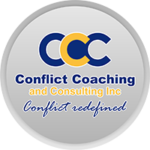Program Components
Anger Management Program Components
Understanding anger
- Anger is a secondary emotion
- Anger is learned
- Anger can be protective and destructive
- Anger should not be replaced, it should be managed
Emotional competence
- What are emotions? Emotions are signals-What are they telling you?
- A time for everything--Are your emotions telling you to slow down?
- Low self esteem and emotional competence
- Empathy
- Interpersonal awareness
Communication skills
- What is communication?
- Passive, passive aggressive, aggressive and assertive
- The power of body language Communicating the right message with your body
- Special issues in communication at work
- Learning to respect others at work
- Using “I” messages to respectfully communicate concerns
- Techniques to improving social skills in the workplace
- Exercises to improve communication skills
Resiliency
- Life is all about change. How will you adapt.
- Is there change in our life or business and how has it affected you.
- What is change?
- How do you deal with change?
- What is resiliency?
- Techniques in deal with change—How to bounce back in healthy ways?
- Techniques to improving social skills in the workplace
- Learning to see options and using options effectively
- Techniques to improve resiliency
Managing Stress
- What is stress?
- Why manage stress
- Common stresses at work
- Techniques for managing stress at work
Negotiation
- What is negotiation?
- How to effectively negotiate at work
- Negotiating in our daily life
- Negotiation to reduce conflict
- Practice negotiation exercises
Conflict Styles
- How do you respond to conflict—withdraw or confront
- Techniques for conflict management in the workplace
- Practice exercises to improve negotiation
